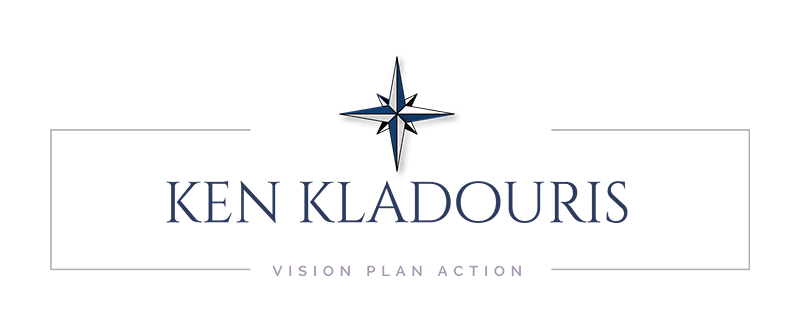So you decided it’s time for a change. You’re ready to stop procrastinating on that book, project, or career switch. You’re willing and capable, but you need some support. That’s led you to research life coaches online. But there are so many, and some of their prices are steep. You wonder: Are personal coaches worth it?
I had the same question before I found my calling: becoming a course creator, life coach, and meditation guide. A few years back, I couldn’t find my way through life’s distractions and worries. I wondered, “is career coaching worth it?”
Eventually, I realized a little help made a huge difference in tackling my goals. I know what you’re thinking: who pays for life coaching amidst countless other expenses when trying to take their business off the ground?
Getting coaching can be the difference between a stagnant idea and a thriving business. But how much should you spend on a coach, and what makes the money worth it?
Those answers largely depend on your personality and desires. In this article, I’ll help you brainstorm by exploring your initial question: Are personal coaches worth it?
The Truth About Life Coaching Investments & Qualifications
The average pay for a life coach is $61.11 per hour, but you’re more likely to see much higher quotes like $150-$300 an hour, so why are life coaches so expensive? Of course, life coaches with specific credentials and experience will charge much more than the national average.
The potential earnings attract many (almost 2 million life coaches in the US) to the profession.
It’s your job to sift through and determine which ones best suit your needs and personality.
On top of that, you should assess your goals before hiring a life coach.
For example: do you really need a coach to navigate emotional or mental health issues? You’re not alone. But if this is the case, you should ask yourself: Do I need a life coach or a therapist? A therapist is accredited and more qualified to assist these issues.
Conversely, if you’re looking for motivation, accountability, and support to reach specific professional and personal goals — a life coach is certainly worth it.
So, then, what should you look for on your quest for an aligned coach?
3 Traits to Look For in a Life Coach
I’ve put together a quick list of things to look for that make personal coaches worth the investment.
#1: Credentials and Professional Experience
Not all credentials are equal in life coaching. You might favor the near-universal ICF credential, but other credentials can also match your needs. The key is to look for credentials that:
- Earn your trust
- Are provable
- Speak to your unique needs
Most life coaches list credentials on their LinkedIn or website; however, you can inquire more during your initial consultation or discovery call.
Ask your potential coach for:
- Names of their credentials
- Name of their coaching certification programs
- The number of their completed coaching hours
This conversation should feel transparent. If your coach can’t provide you with credentials that you can easily verify, that’s a red flag. Why? Because life coaches are useless if you don’t trust them.
Alternatively, a life coach might not have the credentials you’re expecting. But you might value their other professional experience. Let them discuss their specialties, past client successes, and professional development. You’ll gather more information about their credibility and skills that will inform your impression.
A quality life coach demonstrates some universal credibility while making you feel like your unique needs are well-attended.
#2: Customized Programs
Many coaches follow general program templates and programs for every client. But does coaching actually work if it looks the same for everyone?
Absolutely not.
Finding success with a life coach is a lot like finding stillness. The same breathing techniques, mantras, and meditation routine won’t work for everyone.
A life coach should tailor their programs to your needs. That goes for every wellness professional.
In a yoga class, the instructor may suggest adjustments to make your practice more valuable. I believe all life coaches should do the same.
Here are some indications of customized life coaching programs:
Tailored Techniques
Before your life coach maps out their program, they should first gather important information from you through active listening (more on that later).
The coach should tailor their service to your:
- Goals
- Interests
- Needs
- Desires
- Timeline
Be wary of coaches that only work with strict timelines and specific targets that don’t meet your needs.
Active Listening
Life coaches can’t give you relevant, valuable ideas unless they practice active listening, meaning:
- Listening without judgment or interruption
- Asking clarifying questions to understand your feelings
- Digging deeper into your thoughts
Accountability
Did you know there are niche accountability coaches, fully dedicated to keeping you accountable to your goals? Most personal life coaches offer accountability in their programs anyway.
But what are the benefits of having a personal coach if you never learn to be accountable on your own? That’s where this vital component comes in:
Does your life coach empower YOU to learn how to hold yourself accountable?
A personal coaching program shouldn’t be permanent. It should teach how to eventually tackle your goals on your own.
Bottom line? Customized coaching programs should keep your success top-priority.
So, how does a personal coach help you get there?
#3: Proven Methodologies
Coaching style, flexibility, and credentials are all important in a personal coach.
But what does your coach’s day-to-day program look like?
Is the program structured with proven methodologies? Or do they ramble and waste valuable sessions with wishy-washy advice?
Psychology and technology experts describe methodology as one of the most relevant coaching methods, along with mentoring, psychology, and behavior.
Here are some examples of coaching methodologies:
- Goal-oriented coaching: Clients and coaches work together to better use the client’s resources toward reaching specific goals.
- Cognitive coaching: Coaches help clients navigate negative thoughts holding them back.
- Positive psychology: This is a popular methodology, also known as strength-based coaching. Coaches support the client in expanding their strengths to build confidence and positive motivation toward their goals.
- Acceptance and commitment coaching: Coaches encourage clients to work through and embrace their emotions as they move forward. I cover a bit of this in my group coaching sessions, where we all meditate before every session to get into an open, focused, clear mindset.
- Systemic coaching: Coaches explore the client’s behaviors, habits, and patterns to find potential barriers to their success. I explore elements of this methodology in my individual coaching, especially during initial deep work sessions.
Of course, some coaches have different methodologies than the ones above. Take time to ask your coach about their methodologies before committing to their program.
Reach Your Highest Potential with Personalized Life Coaching
So, are personal coaches worth it? Absolutely, if your coach is:
- Credible with proven methodologies and credentials
- Compassionate and an engaged listener
- Dedicated to providing tools pertinent to your success
Everyone needs a helping hand to achieve their goals. I’d love to learn more about yours. Ready to ignite change in your life and get on the focused path toward success?
Contact me today to learn more about my group or individual life coaching services!
“Until you value yourself, you won’t value your time. Until you value your time, you will not do anything with it.” M. Scott Peck







Leave A Comment